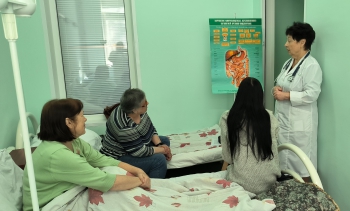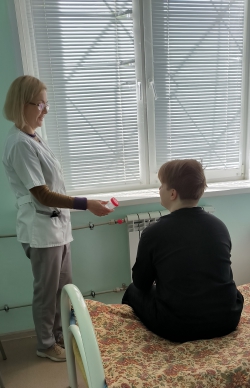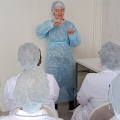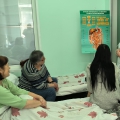The Institute's Infectious Diseases Clinic held a lecture on factors influencing human microflora
|
22 05.2025
The interview with day hospital patients was conducted on May 22, 2025 by the head of the 2nd clinical department, infectious disease specialist of the highest category, PhD Irina Valentinovna Shutova.
|
The human body is a complex superorganism, abundantly populated by microorganisms, the number of which amounts to billions. The number of bacterial species ranges from 2.5 to 4 thousand. At the same time, the microworld of each person is individual. Currently, the human microbiome is considered a single metabolically active organ that constantly interacts with the mucous membranes of the body.
Doctor Shutova I.V. told the audience about the main factors affecting the human microbiome: post-infectious, stressful (psychogenic, thermal, chemical stress, prolonged stay in a depressive state), heredity (genetically determined fermentopathy and digestive disorders), environmental pollution, uncontrolled use of antibiotics, preservatives, household disinfectants.
Nurse of the 2nd infectious diseases department Ekaterina Vladimirovna Gorskina described the procedure for taking material for studying the microflora of the large intestine and the rules for preparing the patient for manipulations. At the end of the conversation, the participants came to the conclusion that in order to maintain health, it is necessary to pay special attention to the “world within us.”
 |
 |






